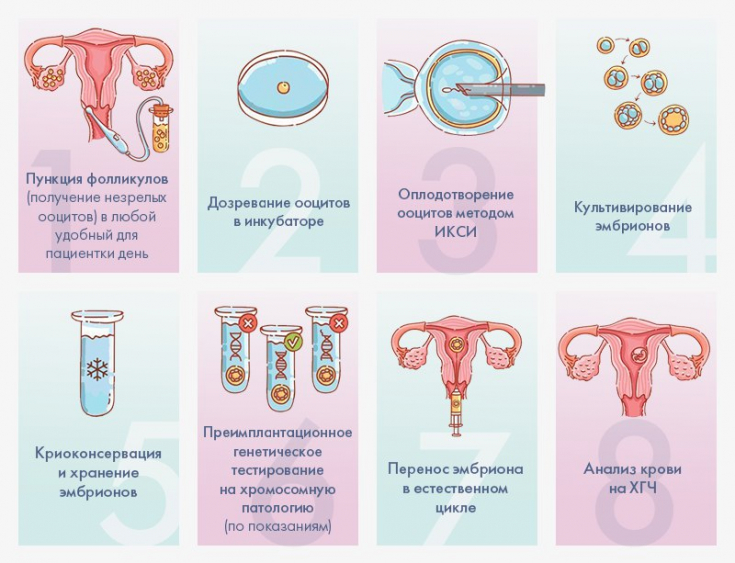The first IVF raises a lot of questions and fears, therefore the reproductologist is obliged to conduct a confidential conversation with the patient who applied for help and debunk the myths about this complex procedure.
Questions are asked diverse, sometimes not related to the manipulation itself. The doctor's wisdom lies in providing a patient, understandable answer. Every doctor understands that the first IVF scares patients, and there is nothing surprising in this.
On estet-portal.com we will consider the volume of examinations for both spouses and pay attention to the most common questions that a reproductive specialist hears at the initial consultation.
First IVF: the amount of research needed for a woman
For the successful implementation of in vitro fertilization, serious and numerous diagnostic measures are carried out. The consultation begins with a detailed medical history and a careful study of medical records.
They find out the presence of chromosomal diseases in the family, whether pregnancy and / or childbirth occurred, whether there is a certificate from the therapist about the possibility of using assisted reproductive technologies (ART). The table below lists the necessary examinations before the first IVF.

At first IVF, if the patient has crossed the thirty-five-year milestone, mammography is indicated. Laboratory diagnostics consists in determining the parameters of prolactin and thyroid-stimulating hormone (1 time in 12 months), the group and Rh factor of the blood (1 time), a general urine test made within the last 30 days.
Additional blood sampling required:
• for biochemistry and general analysis (30 days);
• HIV test (90 days);
• TORCH infections (six months);
• coagulogram (30 days).
According to indications, studies are prescribed for hidden infectious pathologies, endometrial biopsy, hysteroscopy, colcoscopy, hysterosalpingography, additional hormone tests.
Peculiarities of management of multiple pregnancy and childbirth
Required instrumental and laboratory tests for men
First of all, when applying for the first IVF, a man undergoes a swab from the urethra, the results of which are valid for only 14 days. Next, evaluate the results of a general blood test with a leukocyte formula and spermogram data – basic analysis capable of "seeing" the condition of the sperm and evaluate its ability to fertilize the egg during ovulation. Spermogram results are valid for a year.
Before taking a spermogram, you must refrain from sexual contact for 3-4 days, do not visit rooms with high temperature and humidity (saunas, steam rooms), do not drink alcohol.
In practice, spermograms are taken several times, as their results can vary significantly.
Read the most interesting articles in Telegram!

More important information and FAQ
We have provided an approved list of the scope of diagnostic measures for the first IVF. But, after assessing the state of health, studying the outpatient card, it can be significantly expanded or reduced. The reproductive specialist prescribes additional procedures to increase the chances of pregnancy and safe delivery.
In a confidential conversation, the doctor focuses the patient's attention on the myths and false fears that are firmly established in the minds of people who are far from medicine.
There are many misconceptions about IVF, such as that hyperovulation inevitably leads to uncontrolled weight gain, or necessarily ends in multiple pregnancies.
Reassure patients by explaining that after the first IVF, it is possible to give birth to a baby without a caesarean section, the risk of having a child with genetic abnormalities is very small, women's health will not become significantly worse. Alas, in vitro fertilization cannot be called a panacea for infertility and the first attempt is not always successful, but it is a real chance to find a baby, knowing the joy of motherhood and fatherhood.
Read also: Causes of missed pregnancy: what contributes







Add a comment